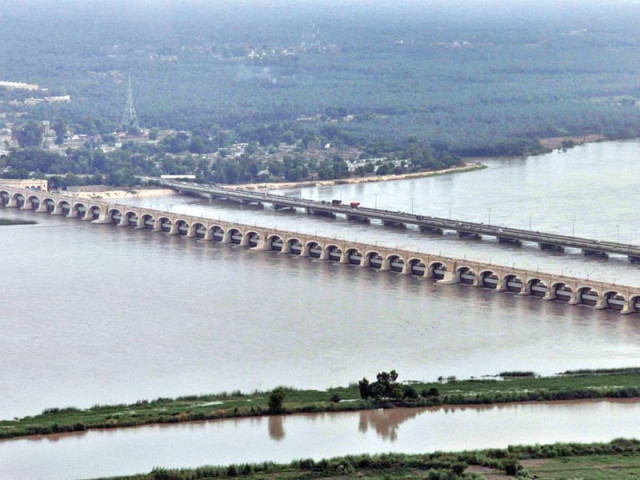Countering New Delhi: National Assembly panel calls for water diplomacy
Owais Leghari wants a contingency plan if Delhi revokes Indus Waters Treaty

Owais Leghari wants a contingency plan if Delhi revokes Indus Waters Treaty. PHOTO: FILE
Presided over by Committee Chairman Owais Ahmed Leghari, the panel also called for the need to conduct detailed study and assessment for a contingency plan in case India unilaterally tears up the water treaty.
Indian prime minister reviews Indus Waters Treaty
In the wake of the Uri attack, the Modi government decided to review the water treaty that survived three wars and other standoffs between the two neighbours.
Leghari said, although India now stopped talking about the treaty, Pakistan must pursue this issue aggressively as any unilateral action by India on this would have dangerous repercussions. Pakistan has already made it clear that India cannot pull out of the water treaty unilaterally but if it does the move would be considered as an act of war.

The committee meeting was convened to discuss the worsening tensions between Pakistan and India as well as recent postponement of Saarc summit that was to be held in Islamabad. Foreign Secretary Aizaz Ahmed Chaudhry dismissed the perception that cancellation of Saarc summit was tantamount to regional and global isolation of Pakistan. He also dismissed the perception that there was any civil-military divide on the issue of relations with India.
The foreign secretary briefed the committee in detail about the atrocities committed by Indian armed forces over the last three months in Indian-Occupied Kashmir and actions taken by the government so far to stop this bloodshed.
Implications of the latest Indian moves on the Indus Waters Treaty
According to BBC Urdu, Rana Muhammad Afzal, member of the ruling Pakistan Muslim League-Nawaz questioned as to why no action was being taken against non-state actors, particularly against Jamaatud Dawa (JuD) chief Hafiz Muhammad Saeed. Afzal, recalling his trip to France for Kashmir diplomacy, told the panel that French authorities repeatedly raised the issue of Hafiz Saeed when he discussed the current unrest in Kashmir with them. He further said that he never heard about Hafiz Saeed too much in Pakistan but he was a notorious character outside the country.
Afzal backed the Kashmir policy of the government. However, he called for taking action against banned outfits including non-state actors as according to him they were only bringing bad name to the country. Rana Afzal did not respond to telephone calls when contacted to seek further clarity to his remarks he made before the committee.
Indus Water Treaty for dummies
When contacted, Committee Chairman Owais Leghari told The Express Tribune that Rana Afzal made the statement in the context of Indian propaganda that Hafiz Saeed was the main hurdle in normalisation of ties. He said the current government had stated time and again that it would not tolerate any non-state actors.
During the meeting Leghari reminded the committee about the recommendations made by this panel on Pakistan-India relations a few months back which were also sent to Ministry of Foreign Affairs for implementation.
“But the chairman regretted that the Ministry of Foreign Affairs has not taken it seriously otherwise we can avoid some of the issues being confronted by the country right now,” said a committee statement.
Published in The Express Tribune, October 7th, 2016.



















COMMENTS
Comments are moderated and generally will be posted if they are on-topic and not abusive.
For more information, please see our Comments FAQ